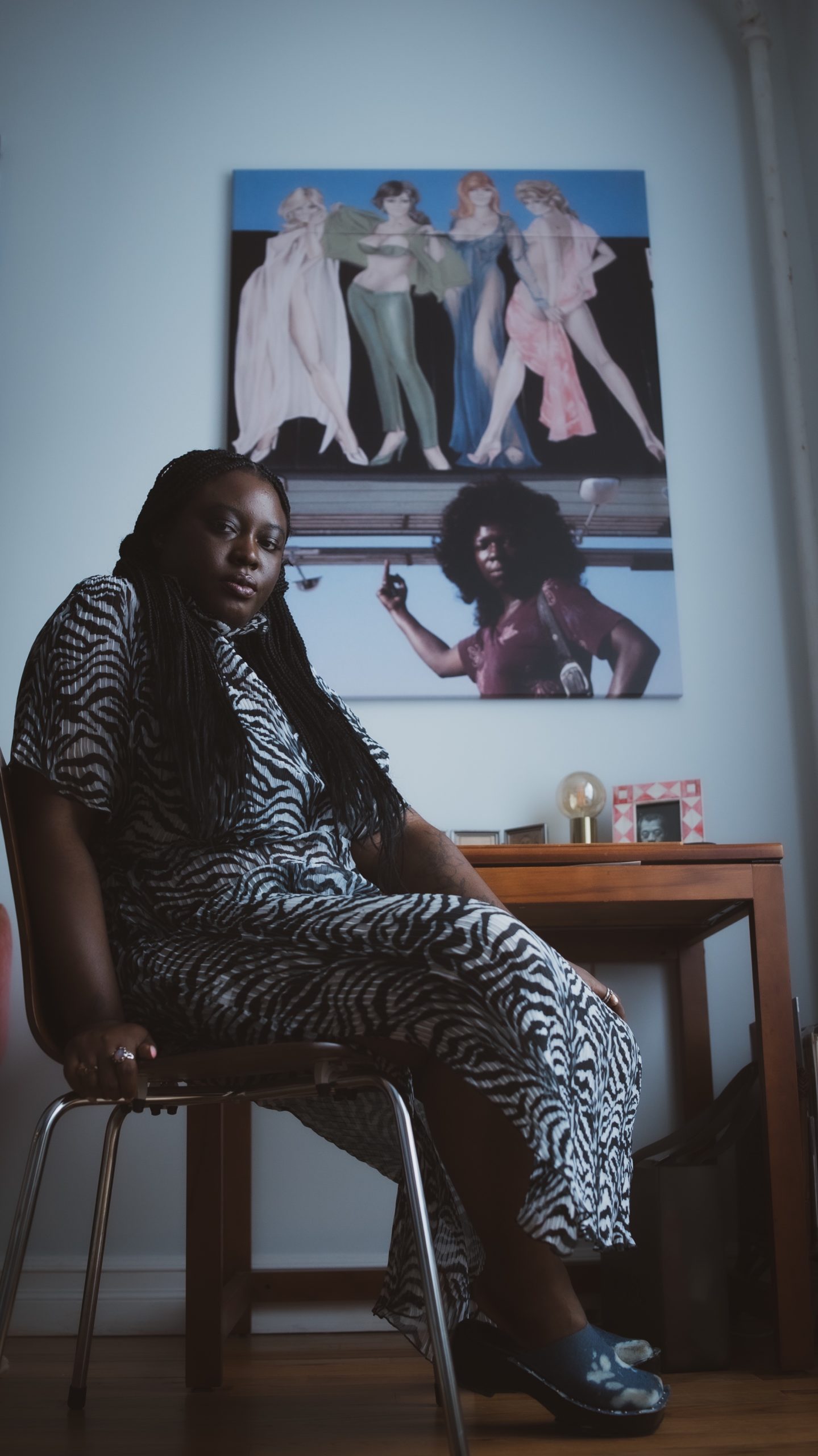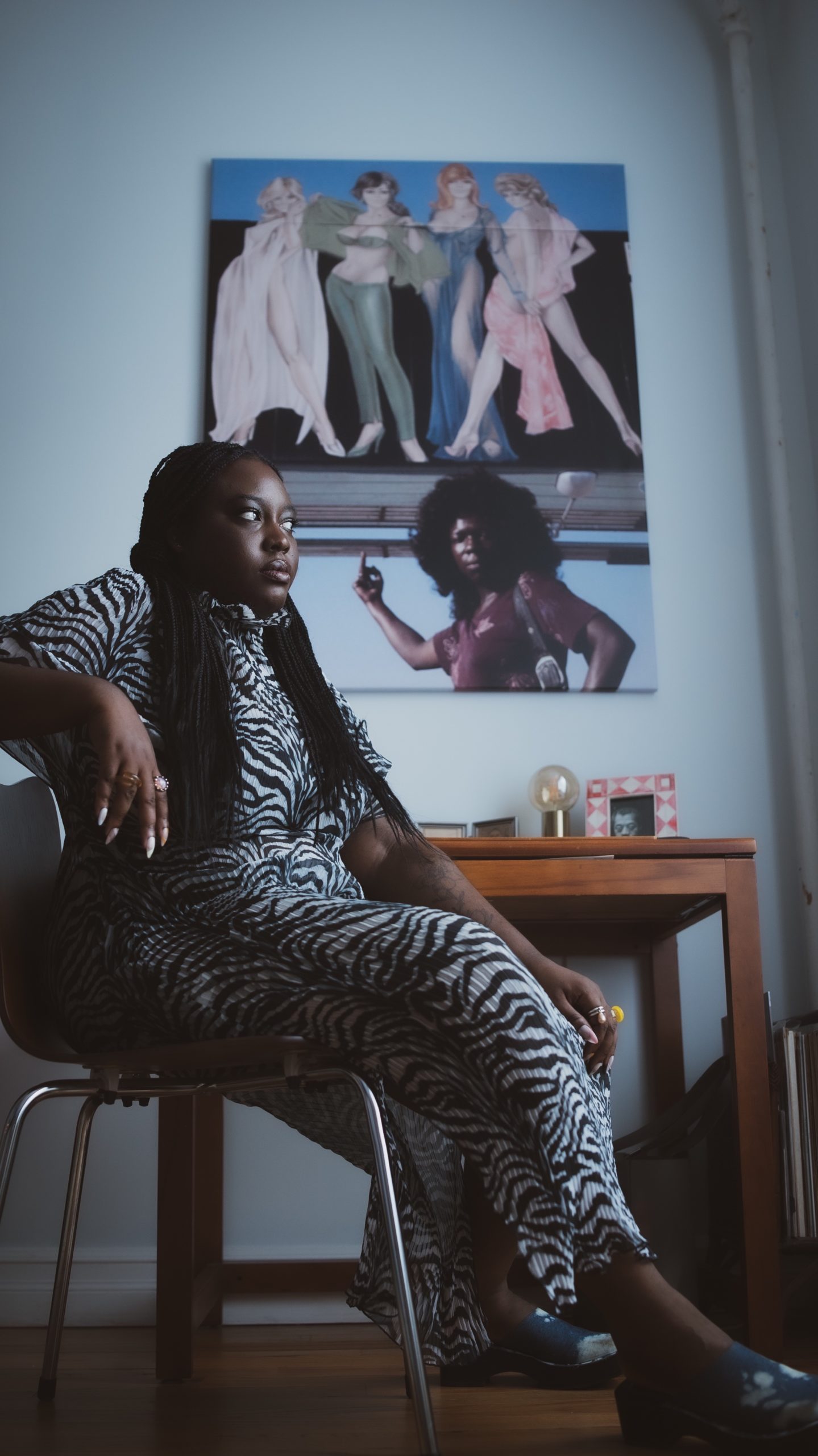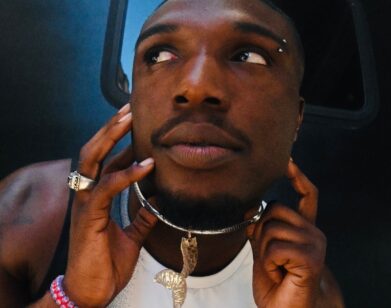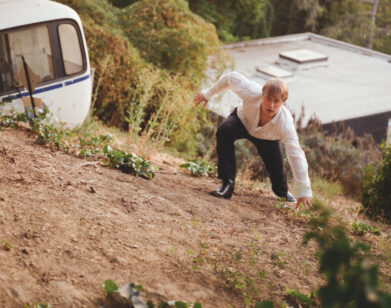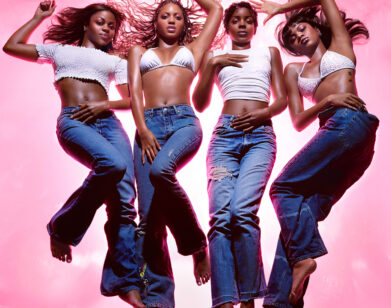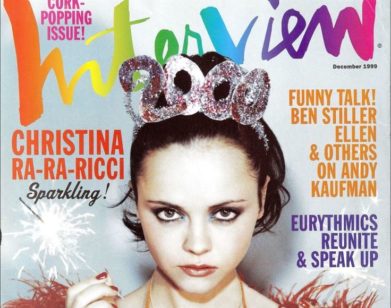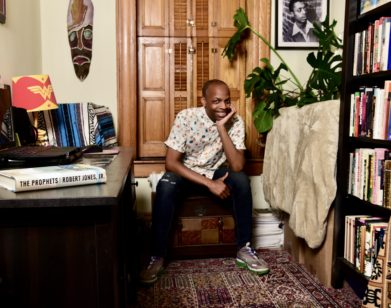rough draft
The Writer and Cultural Critic Zeba Blay is Putting Her Shadows on the Page
This is Rough Draft, in which our favorite writers get to the bottom of their own craft. From preferred writing drinks to whether or not you really need to carry a notebook, we find out all the ways they beat writer’s block and get it done.
In this edition, we speak to the writer and cultural critic Zeba Blay on the occasion of her new book Carefree Black Girls: A Celebration of Black Women in Popular Culture—out today. In the introduction of her essay collection, Blay writes, “To say that Black women are everything, are indeed essential to American culture, to the global zeitgeist, is simply to observe things as they actually are.” What follows is a tender and critical look at the ways that Black women—from Lizzo and Mel B to Zendaya and Josephine Baker— have fueled the continual transformation of pop culture. In honor of her new book, Blay spoke to Interview about what she hopes her essay collection can do for readers, the music that gets her in the zone (lots of Aaliyah), and her love of the Notes app.
———
JULIANA UKIOMOGBE: Your debut essay collection is out today! What gaps on the bookshelf were you trying to fill in writing it?
ZEBA BLAY: I’m hoping that it connects with other Black women, but honestly the title of the book is misleading. It is a kind of celebration, but it’s also a very sad book that I wrote during a particularly low point in my life. I’m hoping that being open and honest about my pain creates more space for other people to talk about or, at least, acknowledge their own.
UKIOMOGBE: Who was on your writing playlist while you were working on Carefree Black Girls?
BLAY: While I was working on the book I was listening to a lot of the music from my ’90s and 2000s adolescence. Aaliyah’s final self-titled album, Spice World, Kelis, Ashanti, Tamia.
UKIOMOGBE: Do you have a favorite essay from the book?
BLAY: The last essay, “Free of Cares.” It was the hardest to write and the one I’m least satisfied with, but writing it made me feel, I guess, free.
UKIOMOGBE: Now let’s get into your routine. What’s your ideal writing atmosphere?
BLAY: I need complete quiet when I write. Please don’t talk to me, and don’t look at me. I’m very easily distracted! That’s why I enjoy writing from home—I can’t write around other people, it makes me too anxious. I need to feel comfy and cozy when I’m writing. Sometimes I’ll write at my desk when I want to pretend to be an adult, but usually, I get the majority of my writing done on my sofa or in my bed. If I’m writing at night, I like to write in the dark and light a candle for a little drama.
UKIOMOGBE: What are your go-to writing snacks?
BLAY: I’m not big on snacks. But I like to reward myself with something indulgent for dinner on deadline days. It gives me something to look forward to, like lobster mac and cheese or Ghana jollof.
UKIOMOGBE: Do you ever smoke or drink alcohol while you write? If so, how do you think they impact you?
BLAY: I am extremely on edge, all the time. Even more so when I’m writing. Depending on what I’m working on, I like a glass of wine or a shot of vodka to loosen up, but I try not to drink too much when I write because I’m kind of a lightweight. There was one night while working on my book where I chain-smoked like crazy to get through a particularly daunting essay— two packs in the space of a few hours. I’ve never been a smoker and haven’t smoked since, so I don’t know what that was all about. I think I just needed something to preoccupy myself with as I spiraled between paragraphs. The apartment smelled gross for days. I like weed but that’s for decompressing purposes.
UKIOMOGBE: Are you an evening or morning writer?
BLAY: I write whenever I can and whenever I feel like it, if I’m in a position to choose. I’m not particular about the time of day, I’m more particular about my mood. I can’t write in a bad mood and I’m usually in a bad mood early in the morning, so there’s that.
UKIOMOGBE: Do you keep a notebook or journal?
BLAY: I use the Notes app on my phone to keep track of ideas, and I record snippets of dialogue that come to me. I also like to record little conversations with myself that I use to map the landscape of whatever piece I’m working on.
UKIOMOGBE: Can you give us a peek into your Notes app?
BLAY: From my notes: She wondered what straight white men talked about when they were alone, when no one was watching.
UKIOMOGBE: Do you prefer handwriting or typing?
BLAY: Typing. My hands cramp up too easily when I write by hand, and my penmanship is too messy.
UKIOMOGBE: What’s your favorite quote?
BLAY: From Octavia Butler’s notebooks: “Make people touch and taste and KNOW. Make people FEEL! FEEL! FEEL!”
UKIOMOGBE: What’s your favorite book to reread?
BLAY: Jonathan Strange & Mr. Norrell by Susanna Clarke. I’ve read it every few years for the last ten years and it’s delicious every single time.
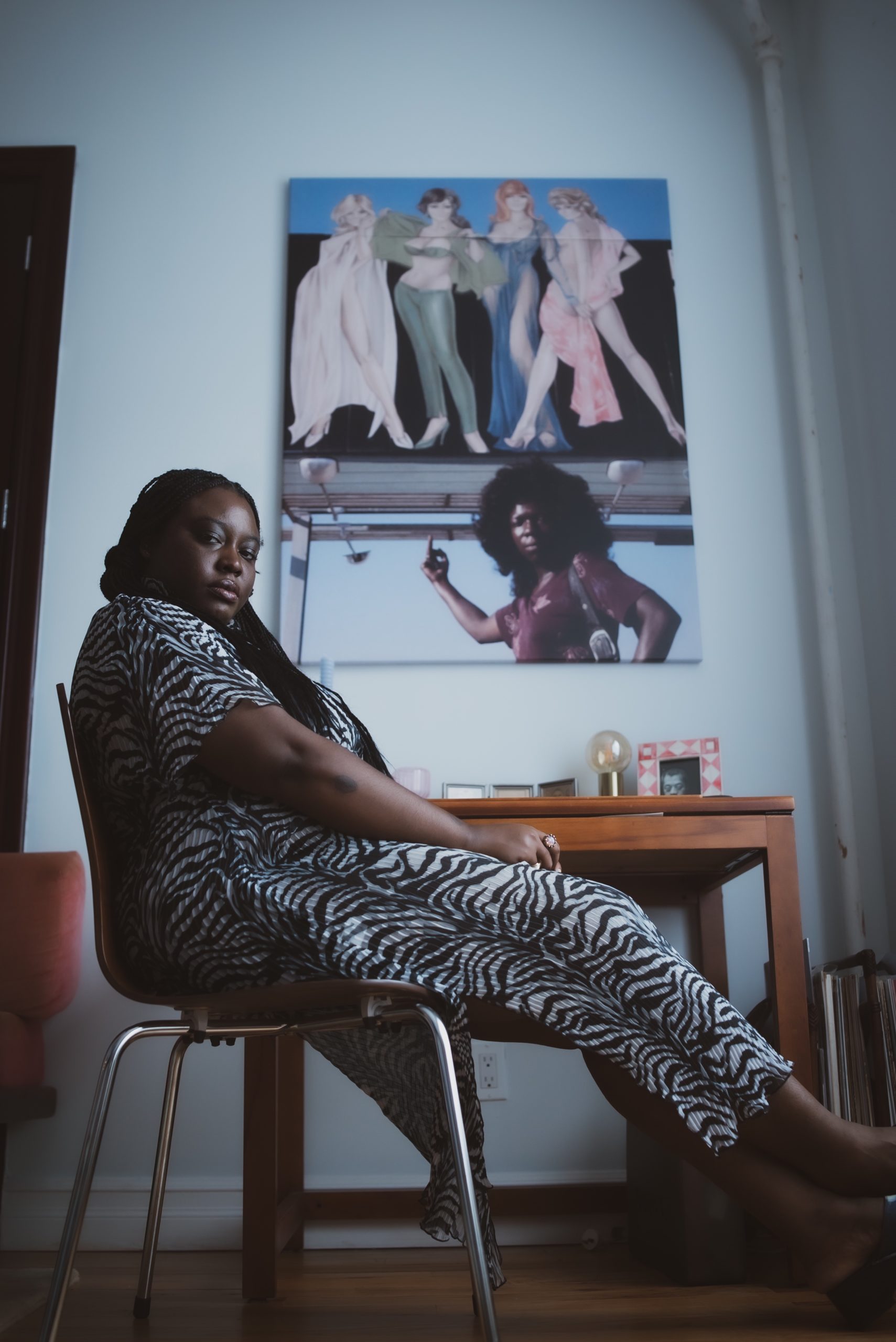
UKIOMOGBE: Who’s your favorite screenwriter?
BLAY: Paul Thomas Anderson and Kasi Lemmons. The screenplay for Eve’s Bayou is pretty much perfect.
UKIOMOGBE: Do you consider writing to be a spiritual practice?
BLAY: It can be, if you allow it. I think writing, like all forms of art-making, is largely about confronting your own ego. Once you’re willing to look at yourself on the page and not flinch, no matter how ugly, you’re moving towards some kind of spiritual growth. For me, I find that a lot of my growth comes from writing about things that make me feel ashamed, or feel like a weirdo. When I write, I’m always trying to reach out to the little girl I once was (and still am). Putting your shadows on a page and then out into the world is scary as fuck, but pushing through the fear, I find, has made me feel so much more connected to myself.
UKIOMOGBE: Which writers would you choose to have dinner with, living or dead?
BLAY: I don’t think I would choose to have dinner with any writers I admire who I don’t already know, I’m too shy. But, dinner with writers I know and love—Akwaeke Emezi, Fariha Roisin, Janet Mock, Dr. Yaba Blay.
UKIOMOGBE: What advice do you have for people who want to be better writers?
BLAY: Be honest.
UKIOMOGBE: What are some unconventional techniques you stand by?
BLAY: I don’t know that this is unconventional, but I find that re-reading things I wrote five, ten, fifteen years ago is cringe as fuck, but also really instrumental to understanding my strengths and weaknesses as a writer. It also helps me embrace the fact that I know nothing, I change my mind a lot, and I’m constantly learning—that’s why I became a writer in the first place.
UKIOMOGBE: Can great writing save the world?
BLAY: I think it can and it has over and over again. If not the whole world, then little worlds— the individual worlds inside all of us. At the very least, great writing, which is honest writing, can give hope. And that’s something, I guess? I don’t know. It’s bleak out in these streets, but I’m trying to remain hopeful, always!

